|
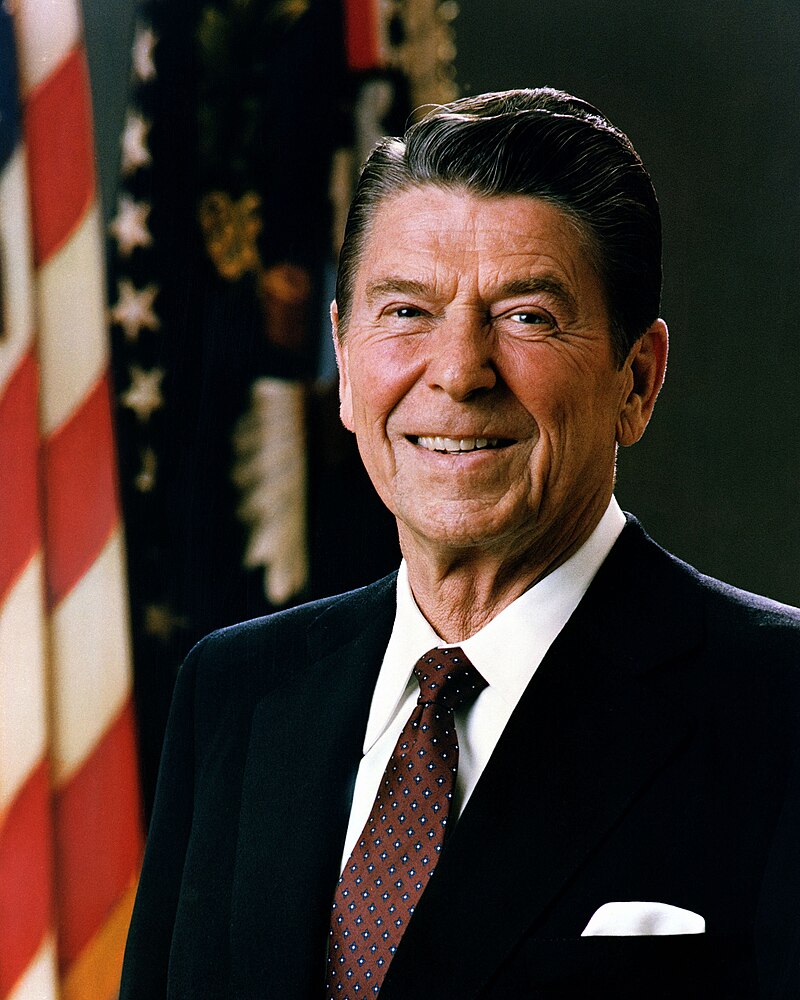
Ronald
Reagan - 40th US President
Ronald Wilson Reagan (February 6, 1911 – June 5, 2004) was an American politician and actor who served as the 40th president of the United States from 1981 to 1989. A member of the Republican Party, his presidency constituted the Reagan era, and he is considered one of the most prominent conservative figures in American history.
Raised in the small towns of northern Illinois, Reagan graduated from Eureka College in 1932 and worked as a sports broadcaster on several regional radio stations. He moved to California in 1937 and became a well-known film actor there. Reagan twice served as the president of the Screen Actors Guild from 1947 to 1952 and from 1959 to 1960. During the 1950s, he worked in television and spoke for General Electric. Reagan's "A Time for Choosing" speech during the 1964 presidential campaign elevated him as a new conservative figure. He was elected governor of California in 1966. During his governorship, he raised taxes, turned the state budget deficit into a surplus, and implemented harsh crack downs on the Free Speech Movement. After challenging and losing to incumbent president Gerald Ford in the 1976 Republican presidential primaries, Reagan won the Republican nomination and then a landslide victory over incumbent Democratic president Jimmy Carter in the 1980 presidential election.
In his first term, Reagan implemented "Reaganomics", which involved economic deregulation and cuts in both taxes and government spending during a period of stagflation. He escalated an arms race and transitioned Cold War policy away from the policies of détente with the Soviet Union that had been established by
Richard
Nixon. Reagan also ordered the US invasion of Grenada in 1983. Additionally, he survived an assassination attempt, fought public-sector labor unions, expanded the war on drugs, and was slow to respond to the AIDS epidemic in the United States, which began early in his presidency. In the 1984 presidential election, he defeated Carter's vice president Walter Mondale in another landslide victory. Foreign affairs dominated Reagan's second term, including the 1986 bombing of
Libya, the
Iran–Iraq War, the secret and illegal sale of arms to Iran to fund the Contras, and a more conciliatory approach in talks with Soviet leader Mikhail Gorbachev that culminated in the Intermediate-Range Nuclear Forces Treaty.
Reagan left the presidency in 1989 with the American economy having seen a significant reduction of inflation, the unemployment rate having fallen, and the
United States
having entered its then-longest peacetime expansion. At the same time, the national debt had nearly tripled since 1981 as a result of his cuts in taxes and increased military spending, despite cuts to domestic discretionary spending. Reagan's policies also contributed to the end of the
Cold War and the end of Soviet communism. Alzheimer's disease hindered Reagan post-presidency, and his physical and mental capacities rapidly deteriorated, ultimately leading to his death in 2004. Historians and scholars have typically ranked him among the middle to upper tier of American presidents, and his post-presidential approval ratings by the general public are usually high.
On March 30, 1981, Reagan was shot by John Hinckley Jr. outside the Washington Hilton. Also struck were: James Brady, Thomas Delahanty, and Tim McCarthy. Although "right on the margin of death" upon arrival at George
Washington University Hospital, Reagan underwent surgery and recovered quickly from a broken rib, a punctured lung, and internal bleeding. Professor J. David Woodard says that the assassination attempt "created a bond between him and the American people that was never really broken". Later, Reagan came to believe that
God had spared his life "for a chosen mission".
WHO
ARE THE MOST POPULAR?
Who
are the most popular United States presidents, the best known and most
hated world leaders from the USA. And how many have been assassinated,
or the subject of shooting attempts. The most famous of which must surely be a
toss up between Abraham Lincoln and John F. Kennedy in 1963.
Then,
who is the best looking, most charismatic, handsome and sexiest, to garner voter
appeal. And that may include manner of speaking as well as athletic
physique. We'd vote for Arnold
Schwarzenegger in a flash, and he did make it to Governor of
California. Probably one of the most charismatic Presidents was Barack
Obama, he could talk the hind leg off a Donkey. Why Henry Cavill does not run for President, beats us. He'd do
well, so long as he joins the right party and their politics work. And
he wears body armour in case of slip ups by his administration.
Alternatively,
politicians could start telling the truth. It could be law that
politicians who lie will be prosecuted for fraud. How about lie
detectors live during political rallies. So the public can see if they
are telling the truth when asked certain baseline questions. It might
save a few bullets in the long run.
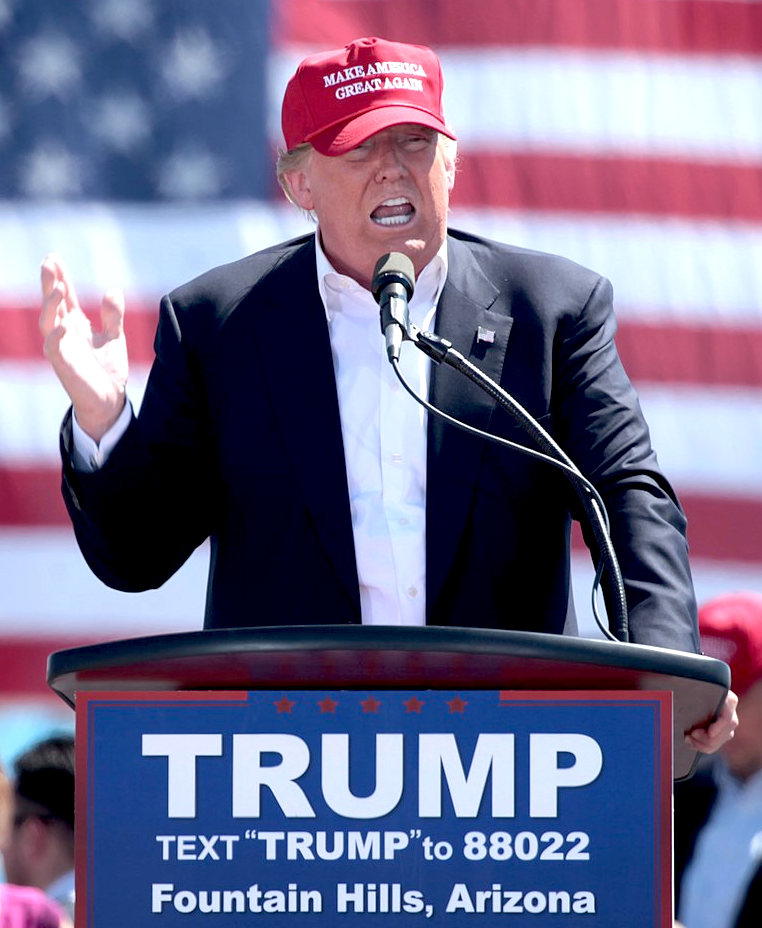
Former
US President Donald Trump, running for office again in 2024 against the
incumbent Joe Biden.
Four American Presidents have been assassinated so far, with two more
shot. The electorate voting with a rifle or pistol. Maybe. Except the
shooting of Ronald Reagan was due to the shooter, John Warnock Hinckley Jr.,
being infatuated with the actress Jodie Foster. Nothing at all to do
with politics, apparently.
In
1968 Senator Robert F. Kennedy was shot at the Ambassador
Hotel.
Like his brothers John F. Kennedy and Ted Kennedy, he was a prominent member of the Democratic Party and is an icon of modern American liberalism.
He was assassinated as he was running for president, much the same as
Donald Trump being shot in 2024.
Russian
President Vladimir
Putin has also been targeted, also his nemesis Volodymyr
Zelenskyy. As was Sir
Winston Churchill, and Adolf
Hitler in World
War Two. But these were not members of the public, these appear to
have been military operations.
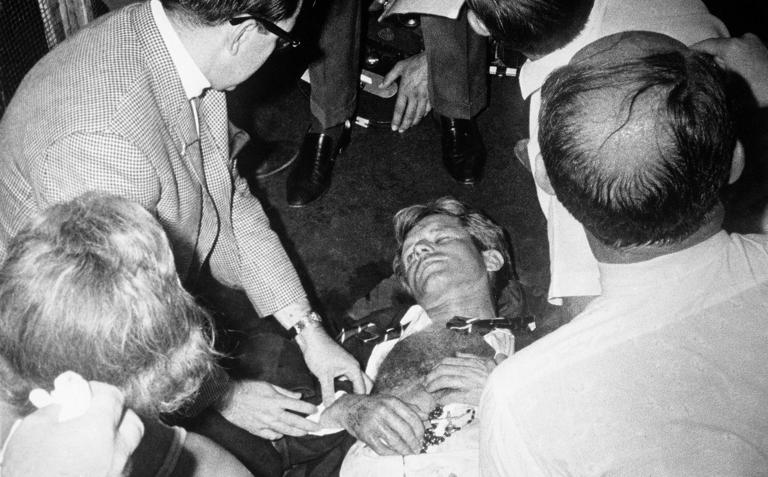
Robert
F. Kennedy (RFK) shot dead in 1968; JFK's brother.
In
many countries citizens have been far from satisfied with the lackluster
performances of their elected leaders. The latest being the landslide
victory of the British Labour
party ousting the incompetent Conservative
self-servers. According to many media reports. In the UK there is no
right to bear arms. Meaning firearms are harder to source. Leaving the
discontented with rotten eggs, or in days of old, bows and arrows (Robin
Hood). Even so, police in the United
Kingdom have armed response units. One of which shot a Brazilian
student, Jean Charles de Menezes in 2005, in London, and another shot James
Ashley while he was naked in St Leonards, Sussex
in 1998.
With
local authority corruption at high levels in Britain, the nation waits to see how Kier
Starmer and his administration copes. So far in 2024 he has leapt
into action with a proposed 35 Bills heading to Parliament.
Many of which are to protect the less well off in society. With plans to
create a new
national energy grid, to get away from reliance on fossil
fuels. We hope the PM's advisors have the vision to incorporate hydrogen
in their plans. We also hope that affordable/sustainable housing gets a
look in, perhaps as zero
carbon timber
framed
flat-packs. Other issues include over development of conventional
housing estates without improving the roadways leading to recurring potholes.
And a water
neutral and sewage system, to stop the at present dumping of raw waste
into the sea. Prosecutions of water
companies and large fines with improvement Order/Notices should do the
trick. The lack of suitable water
treatment and road infrastructure should be material planning
considerations. Total blockers to development, unless the infrastructure
improvements are put in place well ahead of the start of development, by
way of a 106 Agreement. Proposed new development should not harm heritage
assets, associated views, or pollute wetlands, SSSIs and Ramsar sites.
To
help build a sustainable and circular
economy, both the UK and US have serious creative talent in the film
and music industries, a unique export to the rest of the world - as
great movies
and recording artists. This is termed Orange
Growth. As manufacturing is on the decline, IP
and green tourism (hydrogen powered aircraft,
ferries,
river
cruises) could perhaps fill that void, helping to balance trade
deficits.
Stop
the bullets being loaded by working toward sustainable
development, and world
peace
THE TELEGRAPH 15 JULY 2024 - WHAT WOULD HAVE HAPPENED IF TRUMP HAD BEEN ASSASSINATED?
“I’m supposed to be dead,” said Donald Trump, and it’s incredible how close he came. The bullet fired by Thomas Matthew Crooks from a roof in Pennsylvania grazed the former president’s ear. Video suggests he was saved by a head tilt seconds before.
America, warn pundits, was “one inch away from civil war”. Call this distasteful speculation if you wish, but it’s not hyperbolic. It summarises the mood on the ground and the popular memory of past catastrophes.
When people say “civil war”, they don’t mean the 1860s, when North vs South had alternative governments and armies of thousands, but rather the 1960s – when civil unrest was triggered by assassinations and armed extremists lurked in the shadows.
Riots in the wake of the shooting of Martin Luther King Jnr, in April 1968, left 43 dead, 3,500 injured and 27,000 arrested. Liberals demanded reform; conservatives, law and order.
Trump and Biden are old enough to remember those days, and their world-views are shaped by them. Mr Biden sees himself as the heir to Bobby Kennedy, himself assassinated in June 1968. Trump is likened to Richard Nixon.
Today, if either man were to die, or be killed, prior to their formal nomination at a convention, their delegates would be free to pick an alternative via a series of floor votes. Were tragedy to strike after the convention, the nominee would likely be chosen by party officials (with no guarantee that the vice presidential candidate would fill the gap).
The Democrats last held such a brokered convention in 1968, and it descended into a battle between protesters and cops. Institutional memory of that fateful year is precisely why the current Democrat elite is reluctant to drop Mr Biden, to take us back to an age of anarchic politics, mob rule and lone shooters.
Outside of a coal mine, the presidency has proved to be the most dangerous job in US history. Four presidents have been murdered; there were two attempts to kill Gerald Ford alone (heaven knows why). Though the culprits have often been unhinged – Reagan’s would-be assassin wanted to impress Jodie Foster – partisanship provides motive. Lincoln was shot by a confederate actor; William McKinley by an anarchist at a time when that movement was as lethal as al-Qaeda .
Conspiracy theories always follow.
Supporters of Huey Long, a Trump-like populist murdered by a man with a personal grudge in 1935, dubbed their opponents the “Assassination Party”.
The precise effect of political violence depends upon the psychology of society at the time it occurs. By 1981, America wanted to move on from the radicalism of ’68, and Congress became more determinedly collegial. Reagan, recovering in hospital, was visited by Tip O’Neill, the Democrat speaker of the House – and in the most extraordinary scene, Tip fell to his knees in prayer and kissed Ronald on the forehead – rivals, yes, but also friends.
In 2024, partisanship is back in style. Both sides believe the other threatens their liberty, or that they would use unconstitutional means to stay in power.
Violence percolates to the extremes. In 2011, Democrat Gabby Giffords was shot by a constituent; in 2017, Republican Steve Scalise was shot by a Bernie Sanders supporter at a baseball game. White supremacists marched at Charlottesville in 2017 and riots followed the murder of George Floyd in 2020. Then there was Jan 6 2021 and the storming of the Capitol.
Madness is stoked by disinformation: conspiracy theories around the Trump shooting now rival JFK or the Moon landings. Some say the Trump shooting was staged by the candidate himself. Others say the security was deliberately cut back to put him at risk – or the ability of the shooter to get so close indicates an inside job. Why, ask chauvinists, was he protected by a detail of women who looked overweight and unable to holster a gun?
A more compelling story is that the Democrats effectively put a target on Trump’s back by demonising him. “Joe Biden sent the orders,” Representative Mike Collins posted on X – although Trump has maligned his opponents plenty, too, and the political sympathies of the shooter remain unclear.
“Democrats and their allies in the media have recklessly stoked fears,” opined Senator Tim Scott. “Their inflammatory rhetoric puts lives at risk.” If what he says is true – and if Trump had been killed – it’s easy to see how some of his supporters would feel justified in turning to violence.
Imagine a series of Jan 6-ers, a trail of sporadic mob violence targeting officials, journalists, election stations and perhaps the conventions. Again, it’s happened before. The 1995 Oklahoma bombing was carried out by a far-Right activist who believed the US government was at war with its own citizens. A revolutionary situation develops when people think the state is against them and cannot be changed through the ballot box, and the killing of a presidential candidate would, to those of extremist temperament, be final proof.
Oklahoma was inspired by the federal siege at a religious compound in Waco in 1993 – and Trump chose to hold a 2024 rally at Waco airport. He defended the January 6-ers and attacked the “abuses of power” that made this one of the most “corrupt, depraved chapters in all of American history”.
In short, Trump’s death would have pushed his country even further down a road it was already going. Many Americans hope that, having glimpsed over the cliff edge into disorder, people will now step back.
The early signs are encouraging. Condemnation of the shooting and sympathy for the Trump family has been universal. Nikki Haley, his rival in the primaries, has agreed to speak at the Republican convention. And Trump revealed that though his original speech attacking Mr Biden was scheduled to be another “humdinger”, he has since rewritten it with a view to national reconciliation.
“It is a chance to bring the country together,” he said. “I was given that chance.”
https://www.msn.com/en-gb/news/world/what-would-have-happened-if-trump-had-been-assassinated/ar-BB1q2aI2
https://www.msn.com/en-gb/news/world/what-would-have-happened-if-trump-had-been-assassinated/ar-BB1q2aI2
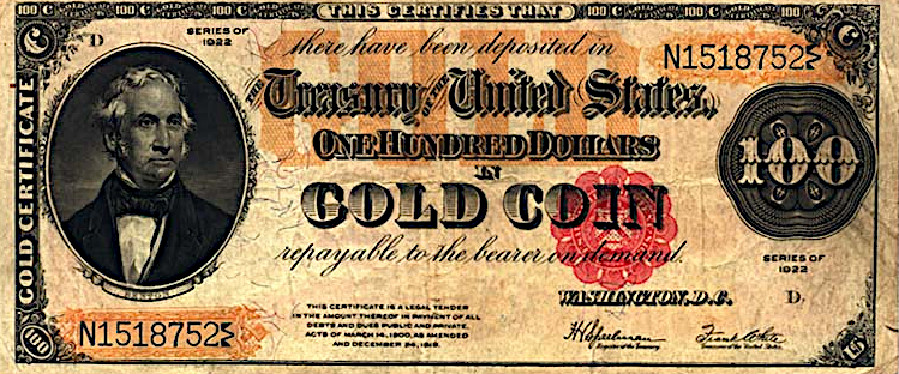
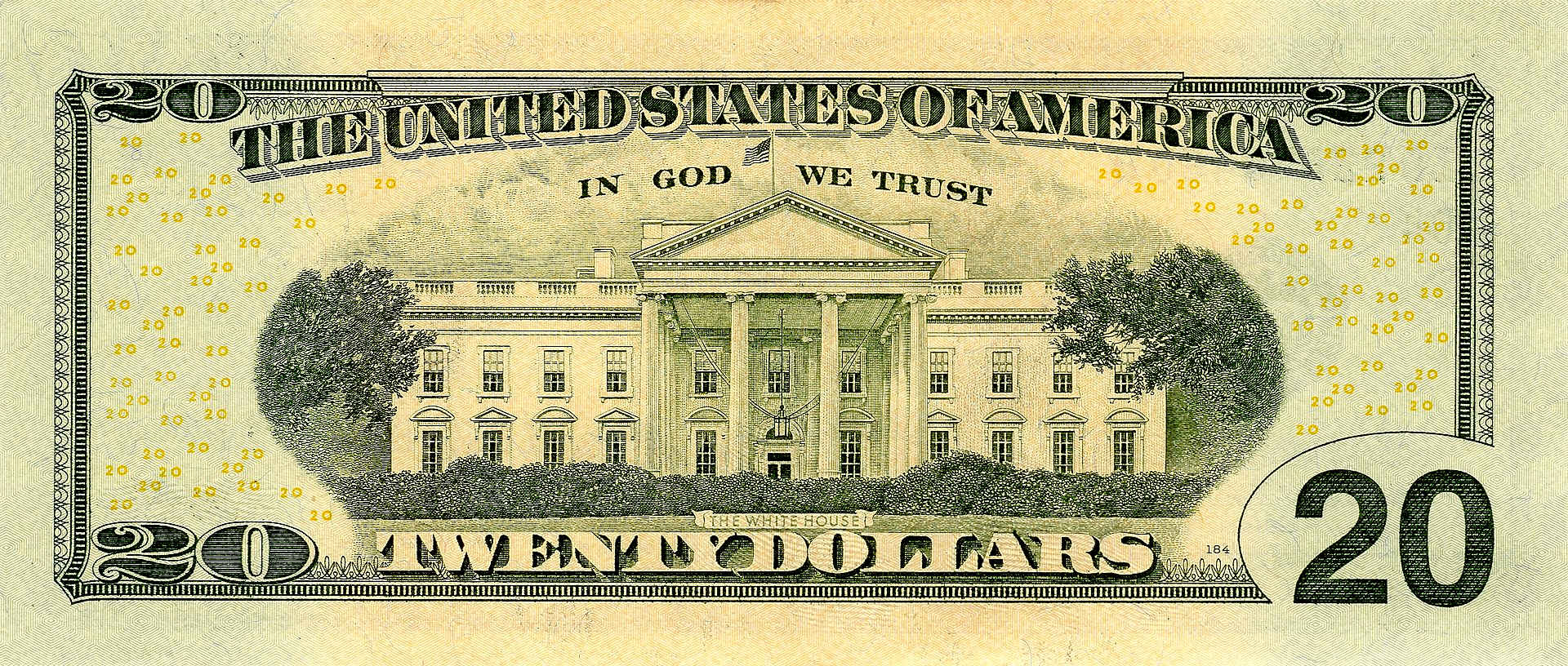
[LEFT]
"We have gold because we cannot trust governments," President Herbert Hoover famously said in 1933 in his statement to Franklin D. Roosevelt. The Emergency Banking Act, forced all Americans to convert their gold coins, bullion, and certificates into U.S. dollars, to stop the outflow of gold reserves during the Great Depression. The writing was on the wall, but nobody could read it.
[RIGHT] A
$20 dollar bill showing the White House on the reverse
|
-
|
-
|
-
|
-
|
|
1
|
George
Washington
|
1789 to 1797
|
Independent
|
|
2
|
John
Adams
|
1797 to 1801
|
Federalist
|
|
3
|
Thomas
Jefferson
|
1801 to 1809
|
Democratic-Republican
|
|
4
|
James
Madison
|
1809
to 1817
|
Democratic-Republican
|
|
5
|
James
Monroe
|
1817
to 1825
|
Democratic-Republican
|
|
6
|
John
Quincy Adams
|
1825
to 1829
|
Democratic-Republican
|
|
7
|
Andrew
Jackson
|
1829
to 1837 (attempted assas.)
|
Democratic
|
|
8
|
Martin
Van Buren
|
1837
to 1841
|
Democratic
|
|
9
|
William
H. Harrison
|
March 4 to April
4 1841
|
Whig
|
|
10
|
John
Tyler
|
1841
to 1845
|
Independent
|
|
11
|
James
K. Polk
|
1845
to 1849
|
Democratic
|
|
12
|
Zachary
Taylor
|
1849
to 1850
|
Whig
|
|
13
|
Millard
Fillmore
|
1850
to 1853
|
Whig
|
|
14
|
Franklin
Pierce
|
1853
to 1857
|
Democratic
|
|
15
|
James
Buchanan
|
1857
to 1861
|
Democratic
|
|
16
|
Abraham
Lincoln
|
1861 to 1865
(assassinated)
|
Republican
|
|
17
|
Andrew
Johnson
|
1865
to 1869
|
National
Union
|
|
18
|
Ulysses
S. Grant
|
1869
to 1877
|
Republican
|
|
19
|
Rutherford
B. Hayes
|
1877
to 1881
|
Republican
|
|
20
|
James
A. Garfield
|
1881
(assassinated)
|
Republican
|
|
21
|
Chester
A. Arthur
|
1881
to 1885
|
Republican
|
|
22
|
Grover
Cleveland
|
1885
to 1889
|
Democratic
|
|
23
|
Benjamin
Harrison
|
1889
to 1893
|
Republican
|
|
24
|
Grover
Cleveland
|
1893
to 1897
|
Democratic
|
|
25
|
William
McKinley
|
1897
to 1901 (assassinated)
|
Republican
|
|
26
|
Theodore
Roosevelt
|
1901
to 1909
|
Republican
|
|
27
|
William
H. Taft
|
1909
to 1913
|
Republican
|
|
28
|
Woodrow
Wilson
|
1913
to 1921
|
Democratic
|
|
29
|
Warren
G. Harding
|
1921
to 1923
|
Republican
|
|
30
|
Calvin
Coolidge
|
1923
to 1929
|
Republican
|
|
31
|
Herbert
Hoover
|
1929
to 1933
|
Republican
|
|
32
|
Franklin
D. Roosevelt
|
1933
to 1945
|
Democratic
|
|
33
|
Harry
S. Truman
|
1945
to 1953
|
Democratic
|
|
34
|
Dwight
D. Eisenhower
|
1953
to 1961
|
Republican
|
|
35
|
John
F. Kennedy
|
1961
to 1963 (assassinated)
|
Democratic
|
|
36
|
Lyndon
B. Johnson
|
1963
to 1969
|
Democratic
|
|
37
|
Richard
Nixon
|
1969
to 1974
|
Republican
|
|
38
|
Gerald
Ford
|
1974
to 1977
|
Republican
|
|
39
|
Jimmy
Carter
|
1977
to 1981
|
Democratic
|
|
40
|
Ronald
Reagan
|
1981
to 1989 (shot rib)
|
Republican
|
|
41
|
George
H. W. Bush
|
1989
to 1993
|
Republican
|
|
42
|
Bill
Clinton
|
1993
to 2001
|
Democratic
|
|
43
|
George
W. Bush
|
2001
to 2009
|
Republican
|
|
44
|
Barack
Obama
|
2009 to 2017
|
Democratic
|
|
45
|
Donald
Trump
|
2017 to 2021
(shot ear)
|
Republican
|
|
46
|
Joe
Biden
|
2021
- 2024
|
Democratic
|
|
47
|
Donald
Trump
|
2025
- (Harris v Trump)
|
Republican
|
WORLD
WAR THREE
In
the event of an international nuclear holocaust, World
War Three will wipe out the White House and most of Washington DC.
All that history gone. Unless, we do something to encapsulate and
preserve that heritage. Just in case a madman somewhere on planet
earth loses it, and pushes his big red button.
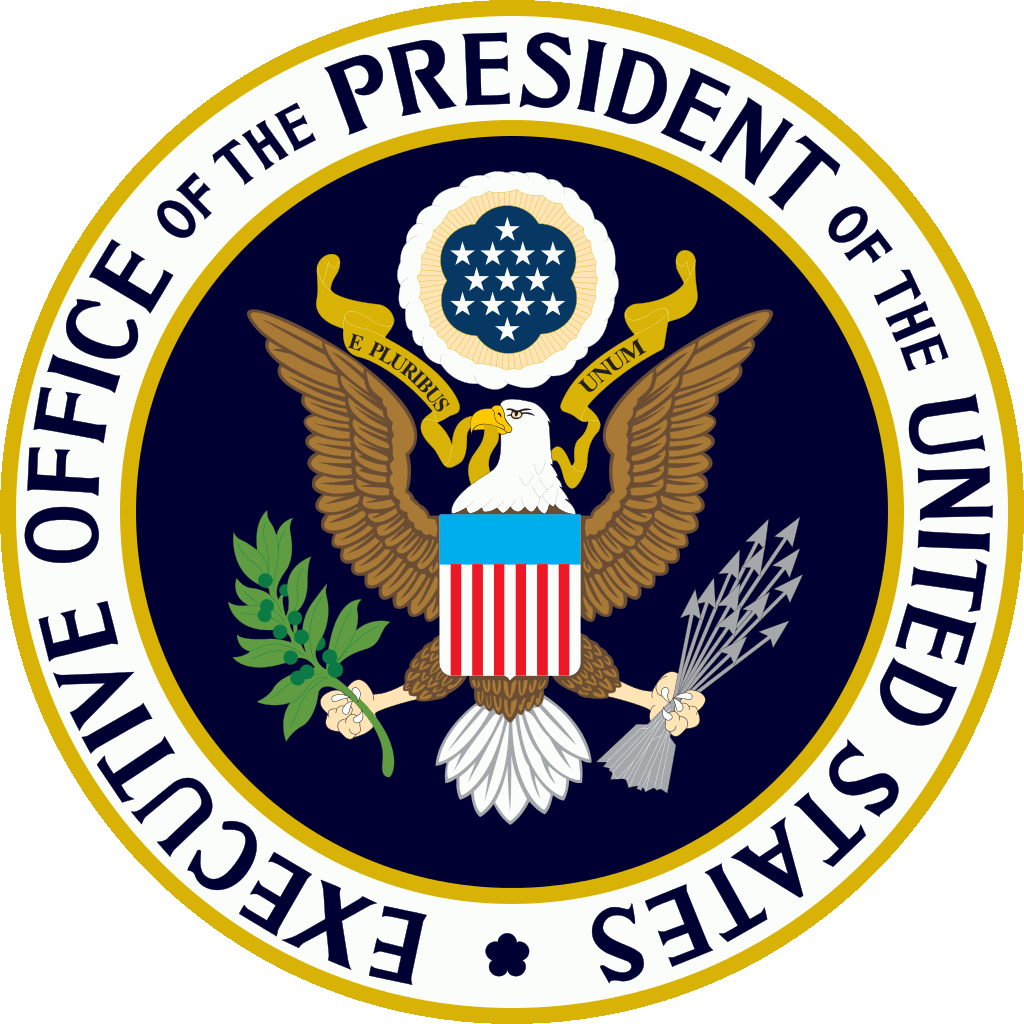
CHAPTERS
| CHARACTERS
| MEDIA
|
MOVIE REF |
SCREENPLAYS
|





